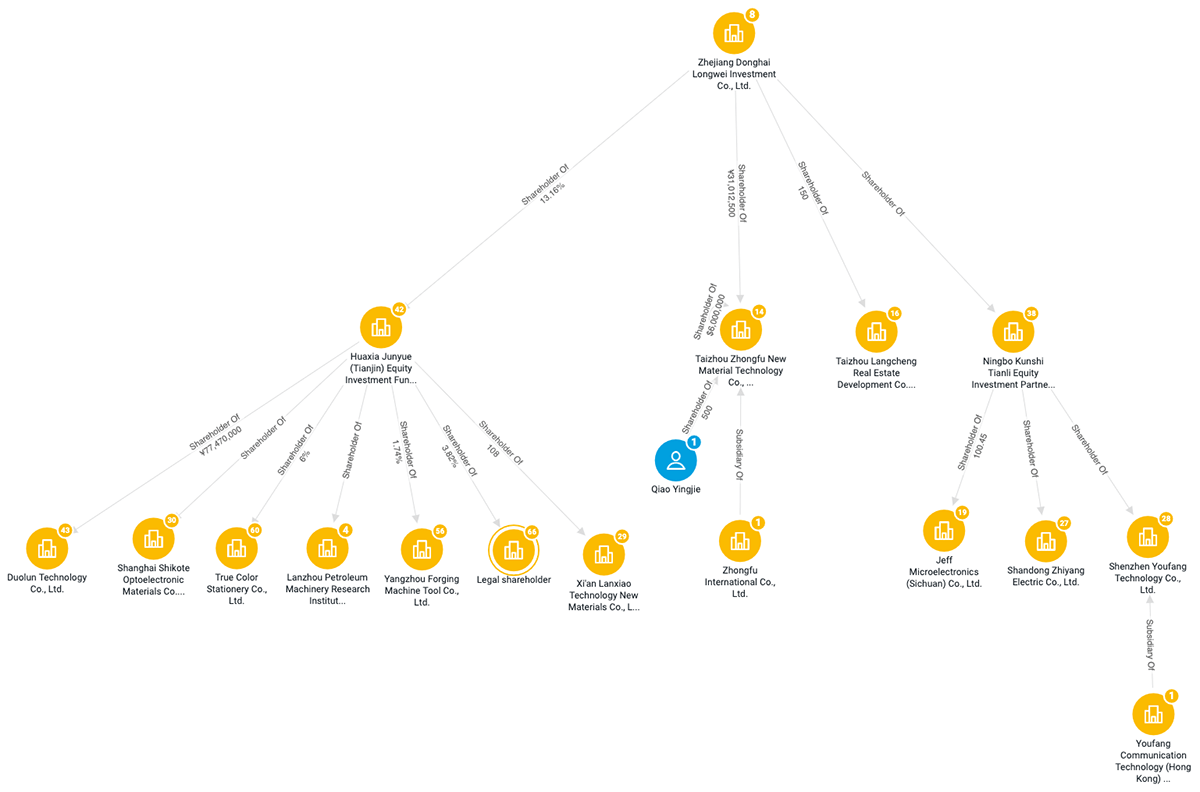Stealing Trade Secrets From Former Employers
In February 2020, Shan Shi, a Chinese national who ran a Houston-based corporation called CBM International Inc. (CBMI), was sentenced to 16 months in prison after pleading guilty to conspiracy to steal trade secrets.
CBMI—also known as Zhongfu International Co., Ltd.—was a subsidiary of a Chinese company called Taizhou CBM Future New Material Science and Technology Co. Ltd (CBMF). The Chinese parent company hired Shan Shi to obtain technology in the U.S. to manufacture syntactic foam, a buoyancy material that aids in offshore oil and gas drilling, and that has both commercial and military uses, according to court documents.
Shan Shi then set up CBMI in Houston and hired five individuals previously employed by the U.S. victim company. The former employees had access to trade secrets pertaining to the development and manufacture of syntactic foam. This information was then used to create a syntactic foam manufacturing process in China.
Taizhou CBMF’s Ties to the Chinese Government
Taizhou CBMF’s ties to the Chinese government run deep. During the investigation, prosecutors found that the company had joined a “National Team of Marine Engineering,” a collaborative effort involving three state-owned entities. The goal of the project was to “carry out joint ventures in deep-sea buoyancy material, military insulation spacer material, and new lightweight composite design to advance Chinese military and civilian interests,” according to the indictment. As part of its involvement in the project, CBMF also received an estimated $650,000 in state funding.
The National Team of Marine Engineering falls within China’s broader geostrategic goals, which include becoming a global leader in the development of marine engineering equipment, among other technology. To achieve this, the country continues to fund research and mobilize the private sector, universities, and provincial governments to cooperate with the development of advanced technologies.
Using Public Records to Identify Risk for IP Theft
Firms in the U.S. have long struggled to effectively combat IP theft emanating from China. While these schemes can affect businesses operating in virtually any industry, they are notorious for targeting engineering, energy, and software companies, among others.
There are many ways to conduct IP theft, not all of which can be easily traced. It can be done through hacking or espionage, or by stealing trade secrets, where employees and business partners become the biggest threat. This is the case of Taizhou CBMF, which hired Shan Shi to set up its U.S. subsidiary to steal technology from a U.S. company.
One way to identify companies at possible risk of having their trade secrets stolen is by verifying that a company of interest does not fall within the corporate network of a company that is known to have carried out IP theft. We took a closer look at Taizhou CBMF’s parent company, Zhejiang Donghai Longwei Investment Co., Ltd., to reveal a broader network of companies that could pose a risk for cross-border IP theft.
Identifying Taizhou CBMF’s Cross-Jurisdictional Ties
- Huaxia Junyue (Tianjin) Equity Investment Fund Partners (Limited Partnership)
- Ningbo Kunshi Tianli Investment Partnership (Limited Partnership)
Huaxia Junyue is a shareholder of seven other companies, many of which have ties to Hong Kong. For example, Huaxia Junyue is a shareholder of True Color Stationary Co., Ltd., a stationery manufacturer. True Color Stationary’s overseas investor, True Color Stationary International Co., Ltd. Hong Kong, holds a 34.7 percent stake in the company.
Ningbo Kunshi is a shareholder of two other companies that have subsidiaries across the globe, according to both public records and its company website. One of those subsidiaries is Neoway Technology Co., Ltd. Neoway Technology’s website lists branch offices in Hong Kong, the U.S., the UK, France, Spain, Germany, Italy, Russia, India, and across Southeast Asia. Given that Taizhou CBMF—a company that shares an owner with Neoway Technology—was using its US subsidiary to steal intellectual property, suggests that all of Neoway’s other overseas subsidiaries are also at high risk for stealing trade secrets or committing other forms of IP theft.

Fig. 1: A snapshot of CBMI’s (Zhongfu International Co., Ltd.) corporate network in Sayari Graph.